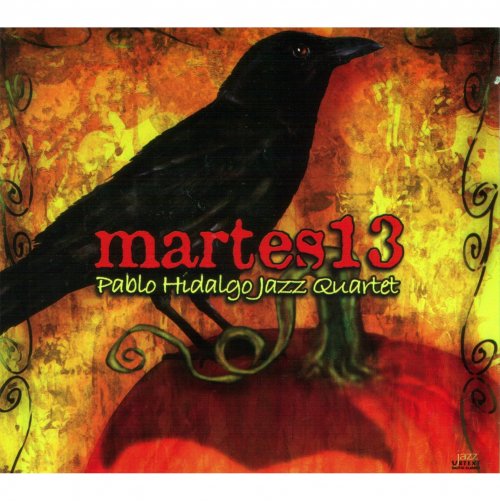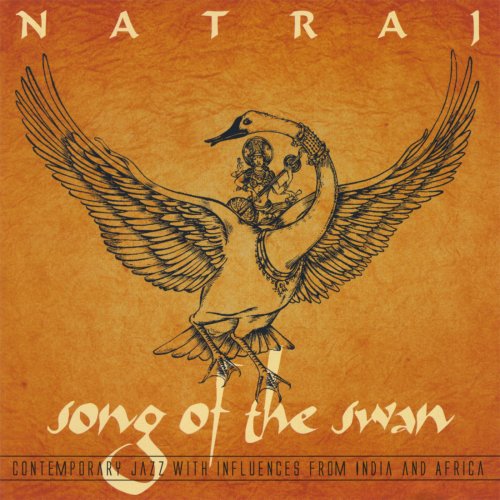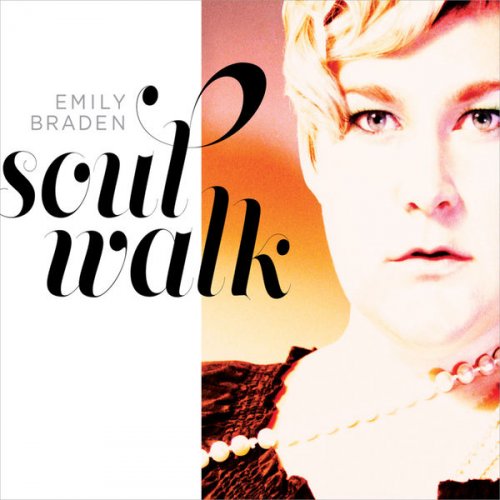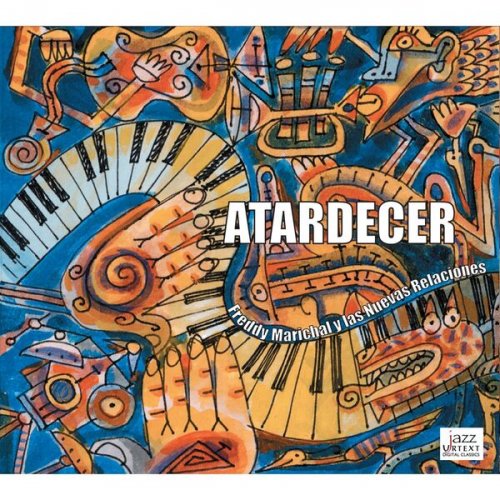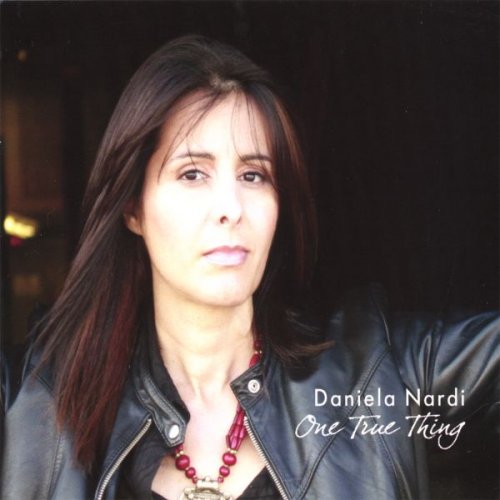Musica Viva Moscow, Alexander Rudin - Glinka: Orchestral Works (2010)
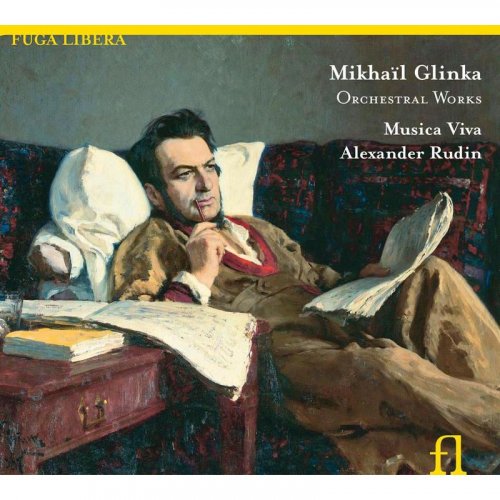
Artist: Musica Viva Moscow, Alexander Rudin
Title: Glinka: Orchestral Works
Year Of Release: 2010
Label: Fuga Libera
Genre: Classical
Quality: flac lossless +Booklet
Total Time: 01:12:19
Total Size: 301 mb
WebSite: Album Preview
TracklistTitle: Glinka: Orchestral Works
Year Of Release: 2010
Label: Fuga Libera
Genre: Classical
Quality: flac lossless +Booklet
Total Time: 01:12:19
Total Size: 301 mb
WebSite: Album Preview
01. Overture In D Major
02. Overture In G Minor
03. Romance « Ne nazivaj »
04. Symphony In B Flat Major
05. Romance « Kolybelnaia »
06. Three Dances for "A Life for the Tsar": I. Passo a tre
07. Three Dances for "A Life for the Tsar": Pas de quatre
08. Three Dances for "A life for the Tsar": Passo a Due
09. Romance « Nochnoj smotr »
10. Kamarinskaya
11. Romance « Ti skoro... »
12. Valse-fantaisie
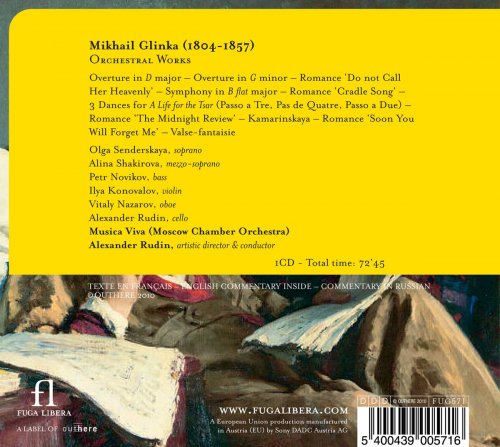
To bring together an album's worth of orchestral music by Mikhail Glinka takes some editorial intervention, but the project proves worth the effort in this release by the Moscow chamber orchestra Musica Viva. The program consists of a couple of standards, Kamarinskaya and the Valse-fantaisie; two overtures and an unfinished Symphony in B flat major; three dances for the opera A Life for the Tsar, only one of which was actually used in the opera; and four songs orchestrated by Glinka himself. There's something fresh in each work, and the generically varied quality of the program, which would have been absolutely standard in the 19th century, only adds to the sense of discovery. The overtures are superior youthful essays in the Cherubini style, and they ought to be programmed far more often as curtain-raisers by small orchestras. The symphony consists of a single movement in a loose variation form, left unfinished by Glinka for unknown reasons; it's clearly a fragment, but, as editor Petr Klimov pointed out, it's the first Russian symphony, and it's full of incipient national characteristics. Klimov also filled out two of the three short dances, complete except for a few orchestral lines. The four Romances are the biggest news here. They stand apart from the light, sparkling tone of the other pieces, which basically offer examples of the style for which Glinka is known; they're deliberate and in one case, the "Nochjob smotr" (track 9), quite weighty. The booklet gives the texts in Russian but only summarizes them in English and French, so Russophones have a distinct advantage here. It does recount some of the history of Kamarinskaya, which justifies the small forces that are used here and result in a fresh, spare version of this big-orchestra standard. The whole thing has the potential to add several pieces to the standard orchestral and vocal repertories, and it's nowhere less than fun and interesting. The sound from Moscow's State Broadcasting and Recording House studios is clear and entirely in keeping with the music-making.
![Peter Appleyard Orchestra - Percussive Jazz (Remastered) (19602025) [Hi-Res] Peter Appleyard Orchestra - Percussive Jazz (Remastered) (19602025) [Hi-Res]](https://www.dibpic.com/uploads/posts/2026-02/1770205711_papj500.jpg)

